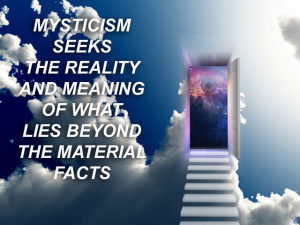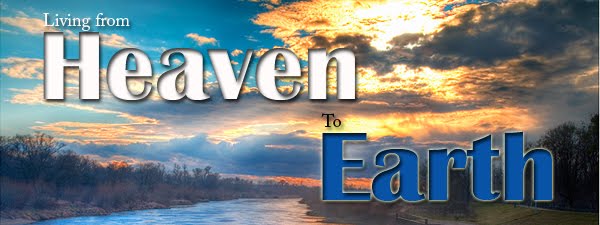The Preacher As Mystic and Shepherd
Mystic and Shepherd
I am in a series of posts on the character of the preacher. We’ve seen, in the previous two posts, that congregations expect their pastor to be a person of faith, and they want their pastor to give accurate information. There are two other expectations that I want to explore in this post: congregations want to experience the preacher as mystic and shepherd through his or her preaching.
The Preacher as Mystic
There is a scary form of mysticism. In this scary form, the mystic believes that the goal of  contemplation is to be absorbed into the Deity. And so, the mystic withdraws from the world to be more and more connected with the divine. In this sense, to say that a preacher is a mystic would be negative. It would imply that they are “so heavenly minded that they are of no earthly good”.
contemplation is to be absorbed into the Deity. And so, the mystic withdraws from the world to be more and more connected with the divine. In this sense, to say that a preacher is a mystic would be negative. It would imply that they are “so heavenly minded that they are of no earthly good”.
I lived in California for many years. During my time there Jerry Brown was a popular politician. He entered politics, he told people, because he had lived in a monastery for many years, where he prayed for the people of the state regularly. But now he came down the mountain to actually do something to help the people of California.

definition of mysticism
Do you get the implication here? He was saying that when he was a mystic, he really wasn’t of any earthly good. But now that he was active in politics, he was “down to earth.”
Miriam Webster dictionary defines a mystic in a more positive way as someone who has, “the experience of mystical union or direct communion with ultimate reality reported by mystics. Or, to put it another way, the preacher must have one foot in each world.
One Foot In Each World
So how can the preacher be a mystic, and why should a congregation want that? Very simply put, the preacher is a person who has one foot in each of two worlds. He or she regularly experience the reality of heaven, and as a result preaches with a belief that all things are possible. Such a preacher really believes that lives can be changed, that churches can find new life, that people can be healed, and that culture can be improved. Why? Because the preacher has connected with an all-powerful God, and continues that connection regularly.
The Preacher as Mystic and Shepherd
But a congregation doesn’t just want a mystical approach, where the glories of the eternal are the constant subject of preaching. They want down-to-earth preaching as well. So, the preacher has a foot in the world as well. The preacher regularly sees the pain and problems of the world.
A congregation should desire a preacher who is both mystic and shepherd in the way that they preach.
There are two primary roles for the preacher as shepherd in sermonizing: to feed the flock and to protect the flock. We preachers are to take the glorious food of the scriptures, and bring it to our people in ways that relate to the lives of our listeners.
But we also protect the flock. Both Paul and Peter make reference to the role of the shepherd when they say, “Keep watch” over the flock (Acts 20:28; I Peter 5:2). The shepherd was not only responsible to make sure the sheep had food. He was also responsible to watch for any danger to the sheep. That danger might come from wild animals (Paul even refers to savage wolves that would come among the sheep), or from thieves that would try to steal the sheep.
The preacher, then seeks to protect the sheep through his/her sermons. The preacher as shepherd has sermons that ring true, and that point out error, and sermons that bring comfort and instruction.
Who You Are Will Impact How People Hear What You Say
In the first of my posts on this subject, I said that who you are impacts how people will hear what you say. The people to whom you preach expect you to be
A person of faith
An informer
A mystic
And a shepherd.
If these things are who you are, your impact will be powerful through your preaching.




Leave a Reply
Want to join the discussion?Feel free to contribute!